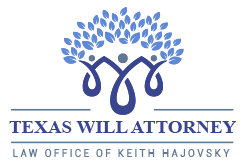Most people incorrectly believe that the money in their bank account will automatically pass through their will in whatever way the will dictates. However, it is very common for a bank account to be opened either as a JTWROS (“joint tenants with right of survivorship”) account or as a POD (“payable on death”) account. In either of these cases the money in the account will pass to whomever the paperwork at the bank says it should pass too, i.e. it doesn’t matter what the person’s will says. Assets that don’t pass through a will are called non-probate assets.
 With a JTWROS account there are two or more people listed on the account. When one of those people passes away that person’s ownership rights automatically pass to whomever else is listed on the account.
With a JTWROS account there are two or more people listed on the account. When one of those people passes away that person’s ownership rights automatically pass to whomever else is listed on the account.
With a POD account the person who opened the account has signed a document at the bank stating that when they die the money in the account should automatically go to the person or persons listed in the paperwork that they signed.
So again with either a JTWROS or a POD account the money in the account will pass outside the will. This isn’t necessarily bad, but you need to plan accordingly.
For example, perhaps someone’s overall intent in their estate plan is to divide all of their assets equally between their three children, and they say so in their will. Well, if they have only one of the children named on the JTWROS or POD account, then that child will get all of the money in the bank account and will still get one-third of what passes through the will. This kind of thing happens all the time and often causes unintended bad feelings between the children.
In another example, someone has set up a trust in their will for their young child, and per the wording of the trust the funds in the trust are supposed to be used to help pay for education and other needs of the child until the child reaches the age of 30, after which time the remaining part of the trust goes directly to the child. Oftentimes parents do this so that the child won’t get the money too young in life and perhaps waste the money away due to not being mature enough yet to handle larger sums of money. Well, if this person has a POD account which says the money is supposed to go directly to their child upon death, then this money won’t go into this trust.
If you don’t want to have the standard JTWROS or POD account, you don’t have to. By law in Texas you can either get a bank account to begin with without a JTWROS or POD designation, or if you already have a JTWROS or POD account you can mail a signed letter to your bank requesting that the account become a non-JTWROS or non-POD account. If you do this, then your money in this account will pass through your will using the terms of the will.


